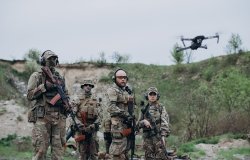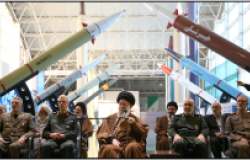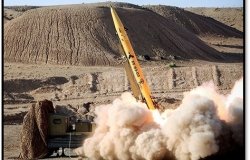Challenges From Pakistan
Pakistan has become the supreme challenge for American foreign policy, says Wilson Center Director Lee Hamilton. We must state our objective in Pakistan clearly, better integrate our military and civilian efforts to build Pakistani capabilities, and increase our non-military assistance to Pakistan.
Pakistan has become the supreme challenge for U.S. foreign policy.
The world's sixth-most populous nation with 170 million people, Pakistan seemingly faces crises on all fronts. It shares borders with China, Iran, an unstable Afghanistan and India, its historic rival. This spring, it required a $7.6 billion loan from the International Monetary Fund to stave off bankruptcy.
Instability in certain regions is spreading, and the government has been ineffective. The army has 15,000 troops in battle and has suffered significant losses, but it has long been fixated on India and remains ill-prepared and ill-equipped to fight a counterinsurgency.
Al-Qaida's leadership resides within Pakistan's borders, and other terrorists have used it as a base to launch horrific attacks on the Sri Lankan national cricket team in Lahore and innocents in Mumbai. The United States has limited confidence in Pakistan's civilian government, which does not control the military. An additional concern is that approximately 75 percent of our military's supplies in Afghanistan pass through Pakistan.
The most worrisome problem is that Pakistan has dozens of nuclear warheads in unknown locations with unknown safeguards, despite U.S. aid explicitly provided to secure them. A Pakistani warhead in terrorist hands is a nightmarish scenario.
Since 2001, the United States has provided Pakistan with more than $12 billion in aid to address some of these problems, but we don't have much to show for it
To begin, we must state our objective in Pakistan clearly and better integrate our military and civilian efforts to build Pakistani capabilities. The United States cannot cede Pakistan or Afghanistan—where our focus always should have been after 9/11—to al-Qaida and the Taliban.
For the last three years, the U.S. military's primary tool has been unmanned aerial drones that target terrorists in the tribal areas. But since 2006, according to counter-insurgency expert David Kilckullen, roughly 60 drone strikes have killed only 14 senior al-Qaida leaders, in addition to nearly 700 Pakistani civilians, radicalizing non-combatants and creating more enemies than they eliminate. Continued reliance on this tactic will require vastly improved intelligence and accuracy.
If we are to win the struggle for hearts and minds, hellfire missiles and dead innocents cannot be symbols of the United States. In 2005, 78 percent of Pakistanis developed a more favorable opinion of the United States after our quick response to the devastating earthquake in northern Pakistan, which killed tens of thousands and left millions homeless.
Re-evaluating the use of drones should be part of a larger shift in our focus toward civilian capacity-building. Of the $2 billion in annual aid we have sent to Pakistan over the last several years, just over one-quarter has been for economic development. Even worse, we don't know how Pakistan has spent the money.
We should no longer write the Pakistani government or military a blank check to finance policies, specifically military policies directed toward India, that run counter to our interests. The domestic extremist threat and counterinsurgency efforts should be the primary focus.
One of the first non-military targets of U.S. aid should be the developing refugee crisis in the North-West Frontier Province. The most recent eruption of Taliban violence has already forced as many as 1.3 million refugees to flee. Helping these people will demonstrate our values and serve our national security interests, as these refugee camps are potentially fertile terrorist recruiting grounds.
The proposal in Congress to triple America's non-military assistance to Pakistan up to $1.5 billion annually is a step in the right direction, but effective implementation is crucial, and by no means assured.
We should demonstrate a long-term commitment to Pakistan in pursuit of shared interests. We should take a delicate but tougher line with Islamabad, demanding performance and accountability in return for aid, while supporting its leaders without playing favorites.
U.S. power to influence events in Pakistan is frustratingly limited on matters so vital to our national security. We have few options. The best—maybe only—hope is that a stable Pakistani government recognizes that the extremists seriously threaten Pakistan's national security, not just ours, and that it must act decisively.










